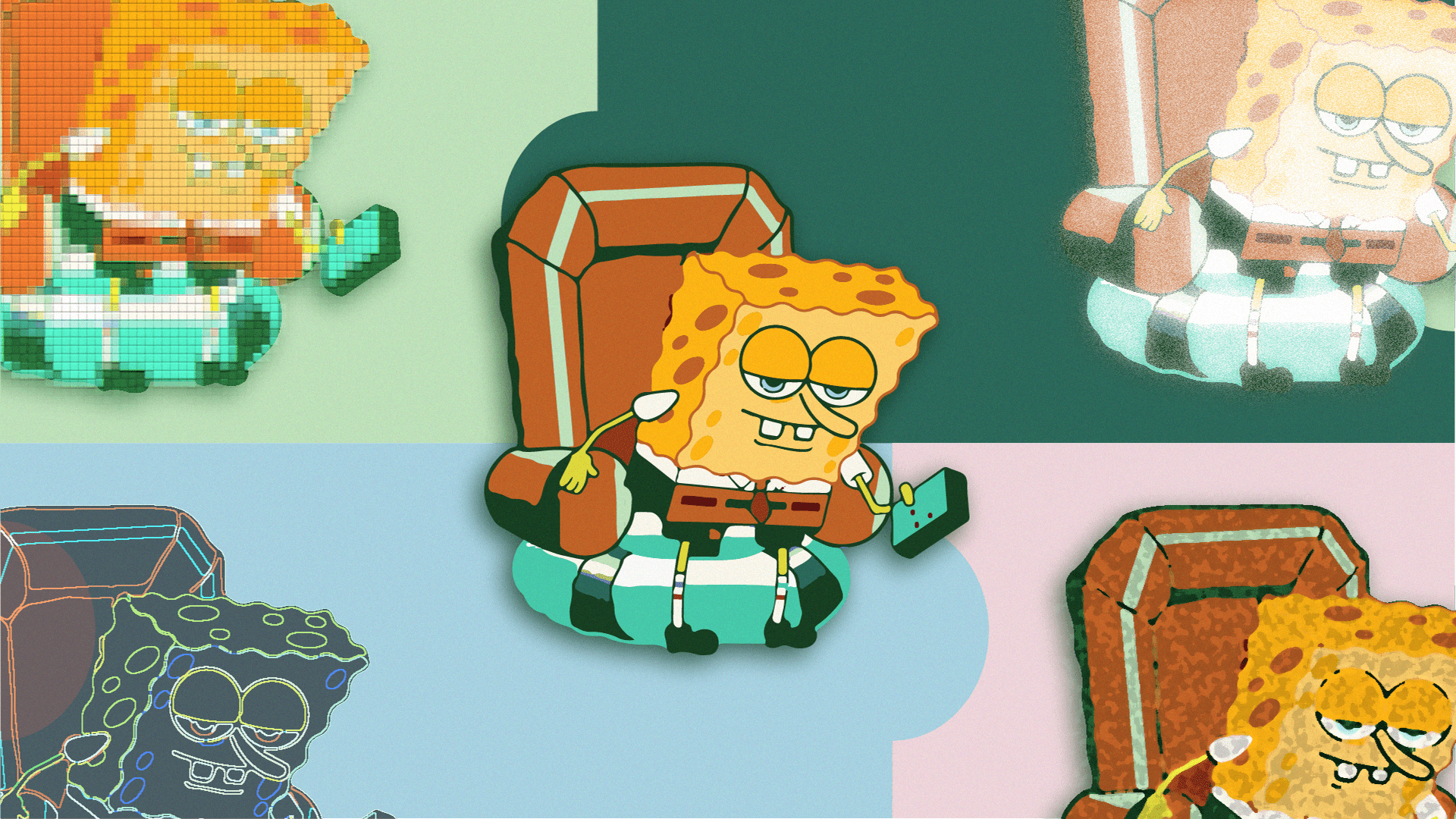
Comedian Rose Kelso Embraces Being ‘Long Island Dirt
Once a source of self-consciousness, Kelso’s hometown now pops up often on her Comedy Central skits and personal TikTok.
Pete Davidson once joked that he wished Hurricane Sandy had “finished the job” when it hit his hometown of Staten Island in 2012. That’s kind of how 24-year-old Rose Kelso, a writer at Comedy Central and the TikTok comedian known as longislanddirt, feels about her hometown of Long Island.
Whereas Davidson’s Staten Island has long been perceived as the “forgotten borough” of New York City, many on the Internet would probably concede that hey, at least it’s not Long Island. Long Island seems to be the butt of every joke for New Yorkers, especially recent transplants doing their best to fit in — and at least Staten Island is part of New York City. Kelso, who grew up in Stony Brook, Long Island, would readily admit the reputation is entirely deserved.
“It’s a really campy, surreal place. There’s nothing consistent about it,” Kelso told The Interlude. “You have rich and poor, and incredibly Republican, but also really granola liberals, and evangelical Christians and Jews. It’s just this wild mixed place, but it doesn’t necessarily mix in a beautiful melting pot of a way. It’s almost just loud chaos.”
In a sense, Kelso reflects a lot of that chaos as “longislanddirt” on TikTok. She’s the kind of TikToker who extensively discusses (and shows) eyebrow bleach jobs gone wrong, walks around in her underwear on camera, flashes some ass, and talks about how much living in New York in your 20s can spectacularly suck (contrary to what other New York TikTokers would have you believe). And her viewers like that. Kelso’s top-performing videos each have more than 1 million likes, and her account overall boasts more than 220,700 followers.
“Here I am: sittin’ in me wee nook alone… where I can fart in peace!” she says in one video.
“When life gets tough, do yourself a favor: go eat some ass,” she encourages in another, flashing a bright smile as she pops a piece of celery in her mouth and crunches away as the camera zooms in.
As she explains it, the username “longislanddirt” was born out of acceptance — one made up of a healthy mix of self-deprecation and pride. It’s not uncommon for someone of any age to have a complicated relationship with their hometown. On the one hand, it’s colored by youthful nostalgia and the people we love. On the other, hometowns can hold a lot of memories and sentiments we want to leave behind. Eventually, we reach a point where we can reconcile those two versions. Kelso has done so through comedy and unashamedly assuming the identity of Long Island dirt, because it feels most genuine — both for her art form and her own relationship with her hometown.
Now, the essence of Long Island permeates her TikTok comedy. It shows up in the quick and brazen way she’ll often speak in her videos, as well as the unapologetic manner with which she conducts herself online, not shying away from bits about having IBS or talking about the more bitterly realistic night time routines of a “dirty pair of underwear and a Benandryl.”
“My alter ego is this Long Island woman who’s like, ‘Well, whateva — do a drug n’ shut up,’” Kelso explained. “That resonates with people because it’s fundamentally someone who’s just living their life, and I do think that’s kind of an attitude amongst some people on Long Island.”
But it took her a bit of time to fully accept her hometown of Long Island as a piece of her identity, much less in her work.
Kelso says that when most people think about Long Island, they envision the Western part of it — Nassau County, which Kelso describes as much more urban. That’s not Kelso’s Long Island. She’s from Stony Brook in Suffolk County, a place she says feels like it’s “stuck in 2012.” Where Nassau County has Zaras in their malls, Stony Brook has Home Goods. It’s “the suburbs,” the quintessential picturesque and sleepy setting of your average Disney Channel original movie. The kind of place where high schoolers can hang out in “No Trespassing” zones and no one bats an eye.
“It still has that nice sort of vibe of like you go to the dock with your friends, and then you run on the North Shore Beach, and you go to the forest,” Kelso said.
For Kelso, Long Island is a complicated entity. It’s the root of many happy childhood memories and the home of some of the people she loves the most. Kelso fondly recalls the picturesque beaches and forests in Stony Brook, naming them as some of her favorite aspects of her hometown. However, as she grew up and the setting of Long Island began to more concretely take shape around her, she started to view it as a place she wanted to leave.
For Kelso, there’s a good deal of hurt stemming from the narrowmindedness of her hometown. She explains that, growing up as a white Jewish woman with slightly tan skin, many were quick to try to organize her into different social and cultural identity boxes and would assume she was Hispanic — an echo of asking anyone who doesn’t look white where they’re from. The subtext of this kind of assumption being: You don’t seem or look like you belong here, as Rakshitha Arni Ravishankar highlighted for the Harvard Business Review in 2020.
“And because it was a racist town, it usually wasn’t asked with love,” Kelso said. “Every time someone met me, they led with a perception of me.”
And then there was also the fact she was Jewish in a predominantly Christian town, something Kelso remembers as a source of extreme alienation as a kid — so much so that she used to beg her mom to let her go to church because she didn’t know any Jewish kids. By the time she was a teen, she felt like she wanted to be anywhere else in the world but Long Island.
She went so far as to not tell people where she was from when she moved to Manhattan to attend New York University, a school with a large number of students from all across the globe. While she saw her classmates’ hometowns as a source of intrigue, Kelso felt somewhat embarrassed of her more pedestrian Long Island origins.
“Even if they were from Connecticut, it was somehow better,” Kelso said. “It’s not that they were from fancier places and I was a scrub. It was just that I really felt like I was from this bland place. I felt like these other people — no matter where they were from — it felt like they experienced something different that I never could’ve being from the purest American suburb.”
When Kelso went to New York City for college, she knew she wanted to work in comedy. She never stayed still throughout her time as a student, taking any job in entertainment and media she could find — from an internship with a PR agency to working as a cargo van driver for SNL (“I was so fucking bad at it,” she said).
Having grown up always watching Monty Python and YouTube comedy videos and traveling into the city on occasion to see comedy shows, Kelso always viewed sketch comedy as “magic” and something she always knew she wanted to explore. She knew she wanted to make it her career after her dad lost his job in 2009. Kelso remembers being in 7th grade, getting off the bus, and instantly knowing something was wrong when she saw her father standing in their front yard in his suit, home much earlier than usual. After her parents broke the news, a tense anxiety blanketed the house for the rest of the day until, later, she heard her parents laughing downstairs. They were watching Saturday Night Live. That moment — seeing the balming effect SNL’s comedy had on her parents and how watching it herself made her feel like everything would turn out alright — stayed in her mind and solidified to her that she wanted to do the same.
“I was like ‘that’s what the power of sketch is,’” Kelso said in an iPhone voice memo. “This is what I want to do. I just want to make people feel good.”
Scoring a job post-grad at Comedy Central, first as an associate producer and now as a writer, felt like a dream come true.
“I feel really lucky. It always felt like an impossible thing,” Kelso said.
While some of her peers on TikTok have turned the app into the core of their careers, Kelso considers it more of an extra arm on the body of her work as a writer for Comedy Central — and a way to contend with her hometown.
By day, she’s a professional writer at one of the leading cable comedy brands. By night (and in her off-time during the day), she’s a TikTok comedian. Kelso spends months revising and perfecting her work for Comedy Central. TikTok, on the other hand, functions a bit like the comedian’s standard open mic night — a way for her to experiment, try new material, and flex her funny bone (not sorry) outside the bounds of a 9-to-5.
“[My Comedy Central work] is stuff that I deeply care about, like they’re my kids or something,” Kelso said. “And my TikTok content is more like eggs. I care about them too, [but] they’re just silly little things.”
But even as TikTok takes a back seat to her career, Kelso’s content seems to deeply resonate with viewers. Similar to its precursor Vine, TikTok content is short and therefore easy to mindlessly scroll through, the visual equivalent of feeding your brain junk food. What’s especially unique about TikTok is its algorithm — a recommendation system that rigorously tracks the tastes of its users every time they visit the app, developing a (somewhat freakishly) intimate familiarity with their likes and dislikes to deliver a curation of meticulously selected videos.
On the content creation side, Kelso said the algorithm seems to push out videos at a massive rate, allowing countless creators like her to go viral every hour of every day. And any kind of video can find success on TikTok, whether it’s a perfectly produced short film, a quick storytime vlog, or a hastily shot video of a rat running across someone’s foot.
When she started making videos, she made a rule for herself not to put too much effort into them. She wanted her content to stay relatively low stakes and “lo-fi,” both because it wouldn’t burn her out and because it’s what felt most true to herself.
“It almost allowed people to relax,” Kelso said.
Sticking to her own rule became a struggle once her videos gained more traction. Kelso caught herself sliding down the slippery slope of the Internet. She felt pressured to catch the lightning of success in a bottle and find the “next big thing.” That then transitioned into her doing “cheap shit for laughs” that she knew would get views.
Eventually, she came to two conclusions: One, that TikTok was far too disposable of an app to warrant copious amounts of her attention, and two, that she finds success in creating content that feels meaningful to her and translating through the lens of comedy — like this past January, when she created her Long Island-inspired “anti-character” who encourages people to live life boldly.
“Life is meant to be disgustin’! It’s meant to be chaotic! It’s meant to smell like piss! You gotta live life like you’re speeding down the wrong side of a highway in a car you stole, but you don’t know how to drive,” Kelso yells in a raspy, heavy New York brogue while wearing a cheetah print fur coat in her first appearance as the personality.
“I think people saw that and they could laugh at it, but it also maybe reminded them that life isn’t serious,” Kelso said in an iPhone voice memo.
The video got 89,000 likes and over 1,000 comments. Although it never took off the ways some bits do on TikTok, Kelso explains putting that video felt amazing and the response she saw from viewers felt sweet.
“Am I crazy or is this really great advice,” one user commented. “Saving this to add to my morning affirmations,” said another.
“I’ve had such better success being like, ‘Okay, this is a profound thing I want to talk about or something dear to me that I want to communicate through comedy,’ and it hitting however many people versus putting out something that I thought would really work that doesn’t,” Kelso said.
Despite her struggles to define her relationship with Long Island, much of her comedy still seems to be inspired by it and the people there — like with the Long Island “anti-character,” but also her parents and one of her ongoing projects at Comedy Central, “Boomer Stoop.”
“My parents are lovely and educated and wonderful. But at the end of the day, they’re a different generation and there are some things that I say that are so normalized in our generation, but just goes right over their heads,” Kelso said. “They’re just not used to it.”
As she’d explain Gen Z issues to her parents, such as using people’s correct pronouns, Kelso would sometimes wish she had a “Sesame Street”-esque show specifically for boomers. So she created one — “Boomer Stoop,” a series of musical sketches in which Kelso educates puppets (who are roughly 50 to 60 years old) on youth culture through song.
Each episode starts with Kelso sitting in front of a miniature, pink baby grand piano (typically wearing lilac platform crocs). One of the boomer puppets approaches her complaining about a Gen Z topic they’re struggling with — which could be anything from the importance of therapy to navigating online dating and understanding kinks — prompting Kelso to break into a catchy song that succinctly and simply explains the relevance of the issue and why the puppets (and others) should care about it.
“It’s not a youth trend. It’s people’s lives that have always been affected and disenfranchised,” Kelso croons in her episode about using people’s preferred pronouns. “Doesn’t matter what you think, you see. It’s basic human em-path-yEEEEeeee.”
Looking back, Kelso thinks she needed to leave Long Island to find the good in it. The first time she took the Long Island Railroad home after moving to college, she remembers stepping off the train, taking a deep, long inhale, and thinking: This is what real air smells like, and it’s so sweet. That was when she saw a seed of intriguing duality of Long Islanders that she now often emulates in her comedy. She still firmly believes Long Island deserves to be the butt of jokes, but these days she’s the one making them.
“The people here are special and complicated — tough nails, but they’re incredibly volatile and sensitive,” Kelso said. “It’s very dichotomous, but I love it for what it is, which is a weird little place that I grew up.”


